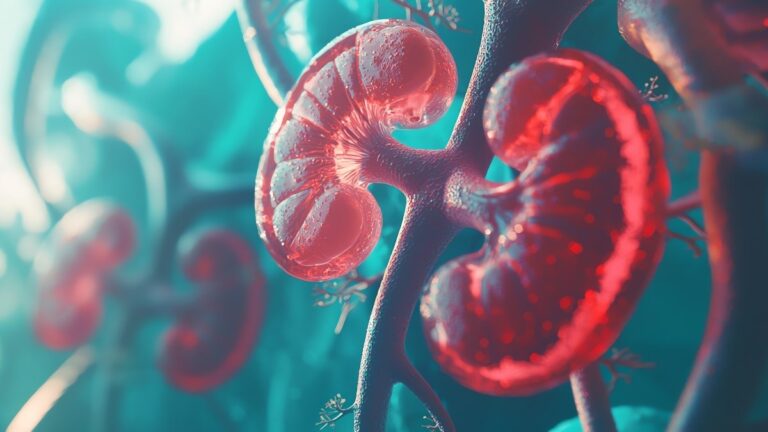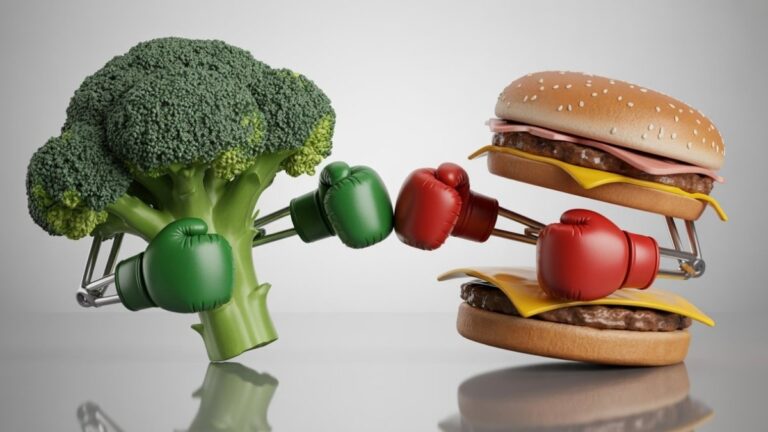Nutritionists Reveal the Gut-Healing Superfoods That Are Changing the Game for Over-30 IBS Sufferers
If you’re over 30 and living with IBS, you’ve probably been told to avoid more foods than you can actually eat—but what if the solution isn’t elimination, but strategic addition?
With over 45 million Americans affected by IBS, and symptoms often intensifying after age 30, many find themselves stuck in a cycle of restriction and frustration.
The truth is, digestive resilience declines with age, making it harder for your gut to bounce back from flare-ups. And yet, most IBS advice still centers on cutting foods out rather than healing from within.
Here’s the good news: there’s a better approach. By incorporating gut healing superfoods for IBS, you can actively soothe inflammation, rebuild gut lining, and support digestive health over 30—without starving your plate of variety.
Why Your Gut Needs Different Support After 30
Your stomach used to handle everything. Pizza at midnight? No problem. Spicy food three days straight? Easy. But now you’re over 30, and your gut feels like it’s working against you.
CHECK ENGINE: GUT HEALTH
Why your 30s feel different. Tap a warning light to diagnose.
> RESULT: Foods that never bothered you before now cause bloating and gas.
> RESULT: Your internal “garden” is losing plants, making it harder to handle different foods.
> RESULT: Food sits longer, causing more discomfort.
The 14 Gut-Healing Superfoods for IBS Relief
Your stomach hurts again. The bloating won’t stop. You feel like your gut controls your whole day. Sound familiar?
If you have irritable bowel syndrome (IBS), you know the struggle. One wrong food and you’re stuck in the bathroom for hours. But here’s good news: certain gut-friendly foods for irritable bowel syndrome can actually help heal your digestive system.
These 14 superfoods don’t just avoid triggering symptoms. They actively fight digestive inflammation and repair your gut lining. Let’s look at each one and how to use them for real IBS relief.
1. Bone Broth: The Gut Lining Repair Hero
Bone broth is liquid gold for your digestive system. It’s packed with collagen, glycine, and glutamine – three compounds that literally rebuild your gut lining from the inside out.
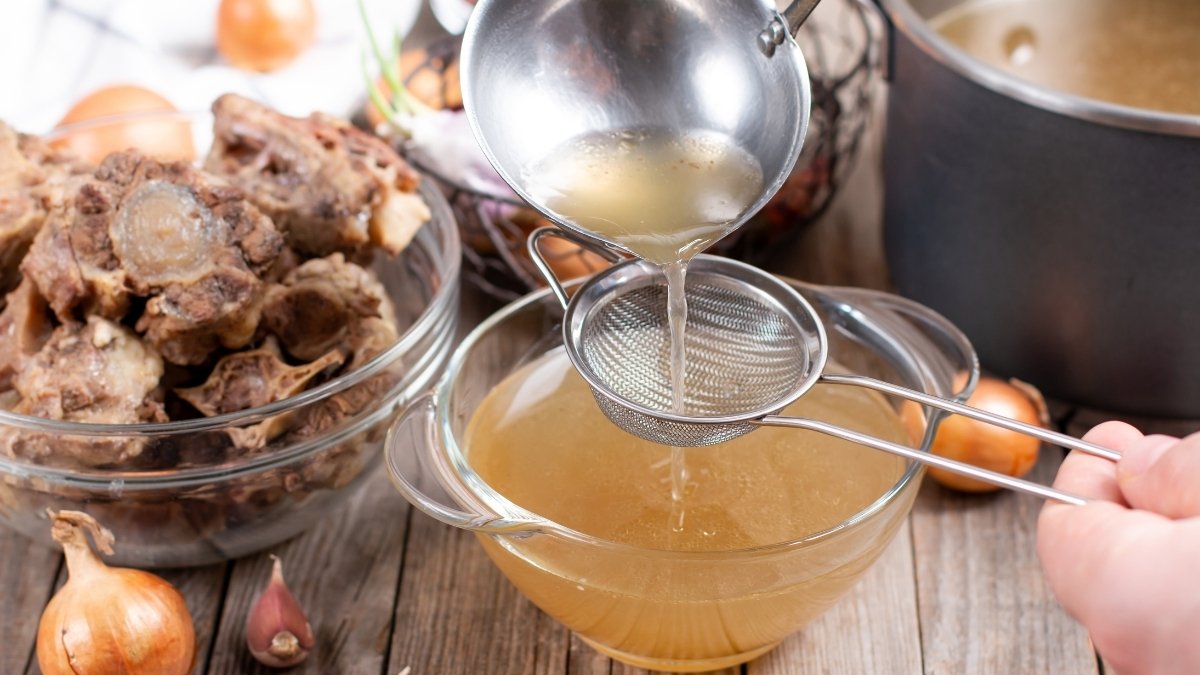
Why it helps IBS: The amino acids in bone broth seal up tiny holes in your intestinal wall. This stops food particles from leaking through and causing inflammation. Studies show that glutamine reduces gut permeability by 40% in just two weeks.
How much to drink: Start with 8 ounces daily. Work up to 16 ounces if you tolerate it well.
Best way to prepare: Make it yourself or buy organic, low-sodium versions. Heat it gently – don’t boil it hard or you’ll break down the proteins.
When to drink it: Sip it between meals, not with food. Morning is ideal because it gives your gut time to absorb the nutrients.
Watch out for: Some people react to histamines in bone broth. If you feel worse after drinking it, try shorter cooking times or skip it entirely.
2. Fermented Coconut Yogurt: Probiotics Without the Pain
Regular dairy yogurt can trigger IBS symptoms in many people. Fermented coconut yogurt gives you all the gut-healing probiotics without the lactose or casein that cause problems.
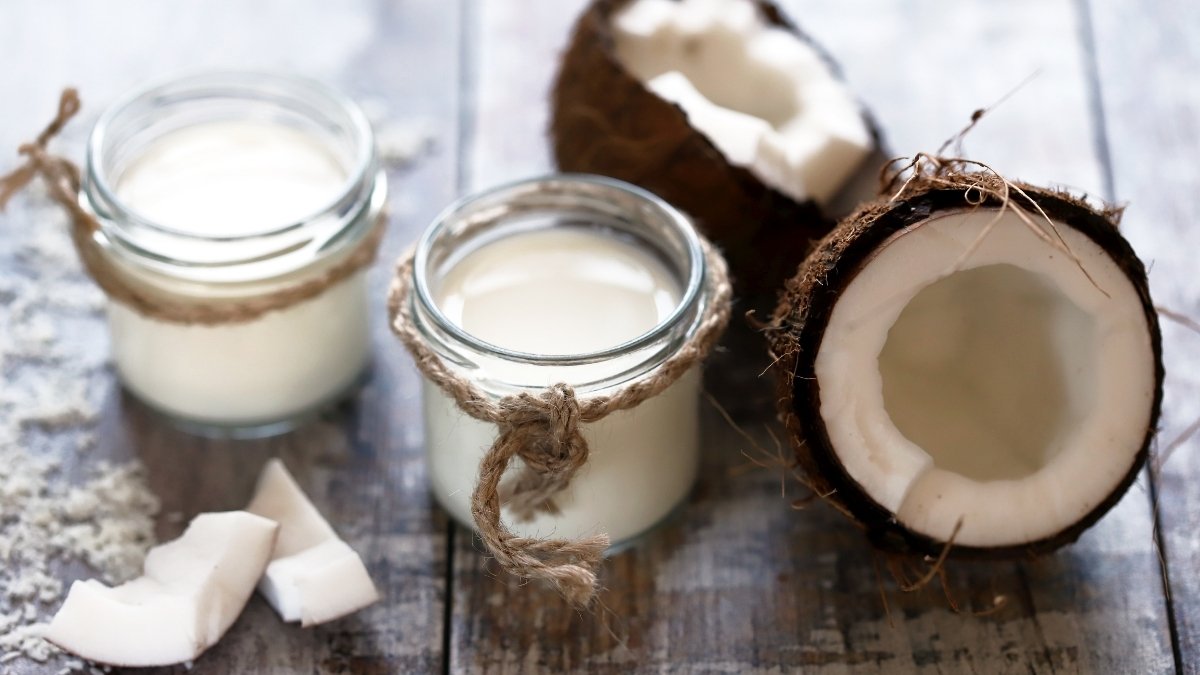
Why it helps IBS: The live cultures in coconut yogurt restore healthy bacteria in your gut. Research shows that specific strains like Lactobacillus acidophilus reduce IBS symptoms by 60% in eight weeks.
How much to eat: Start with 2-3 tablespoons daily. Gradually increase to half a cup if your body handles it well.
Best preparation: Look for brands with at least 10 billion CFUs per serving. Make sure it has no added sugars or artificial flavors.
When to eat it: Have it with or right after meals. The food helps protect the probiotics from stomach acid.
Cautions: If you have SIBO (small intestinal bacterial overgrowth), probiotics might make symptoms worse. Talk to your doctor first.
3. Cooked Spinach: Gentle Nutrition for Sensitive Guts
Raw spinach can be hard to digest when you have IBS. But cooked spinach becomes a gentle powerhouse of folate, magnesium, and iron that your gut can actually absorb.
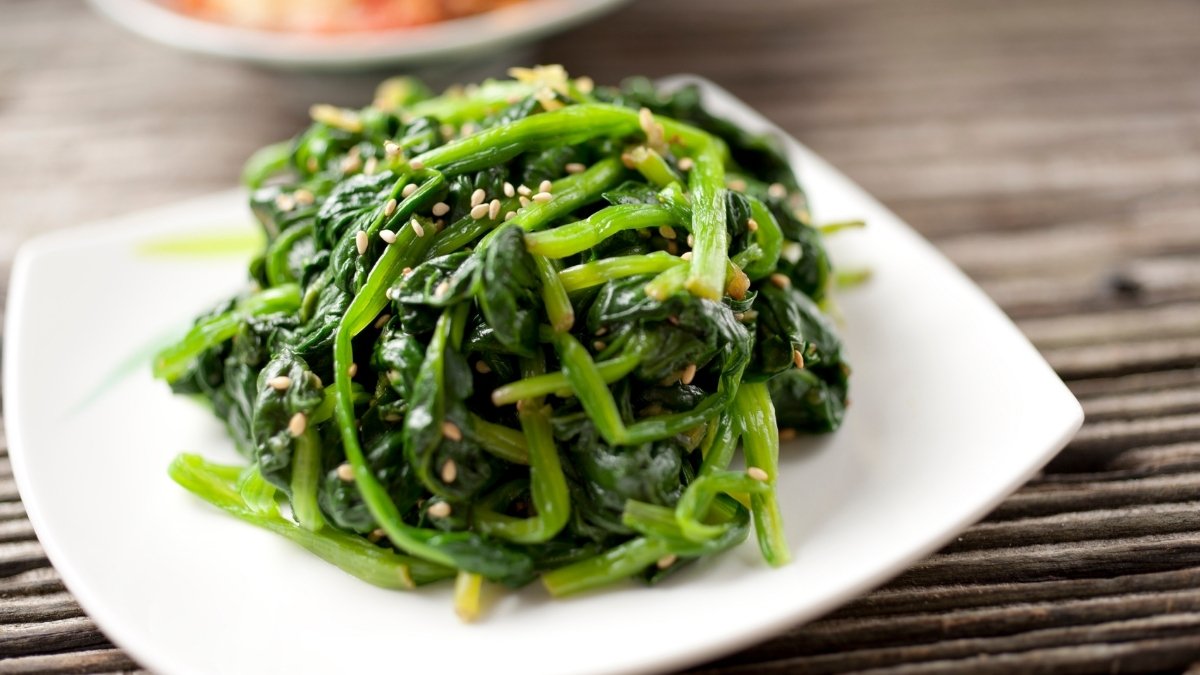
Why it helps IBS: Magnesium relaxes intestinal muscles and reduces cramping. Folate supports the cells that line your digestive tract. Cooking breaks down the tough fibers that can irritate sensitive stomachs.
Serving size: Aim for 1 cup of cooked spinach 3-4 times per week.
How to prepare: Steam or sauté lightly with a little olive oil. Don’t overcook it until it’s mushy – you’ll lose nutrients.
Best timing: Eat it with dinner when your digestive system is most active.
Be careful if: You take blood thinners. Spinach is high in vitamin K, which can interfere with these medications.
4. Ginger Root: Nature’s Stomach Soother
Ginger has been calming upset stomachs for thousands of years. The compounds gingerol and shogaol reduce digestive inflammation and speed up gastric emptying.
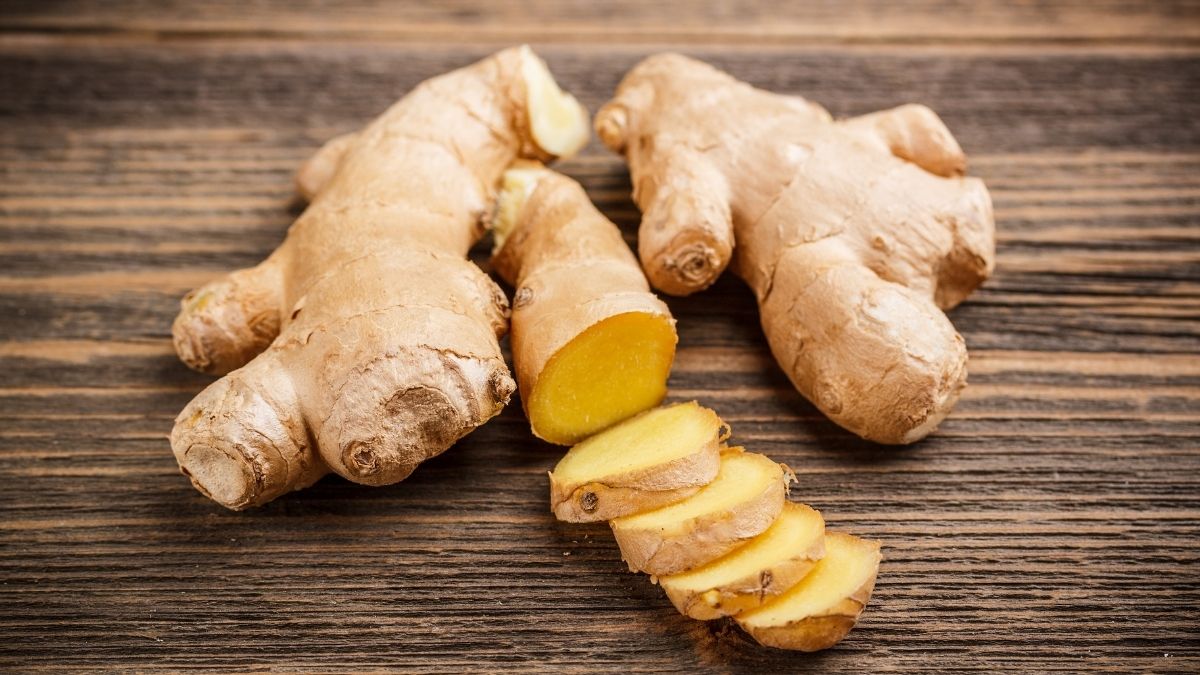
Why it works for IBS: Ginger blocks inflammatory pathways in your gut and helps food move through your system faster. Studies show it reduces nausea and bloating by 25% in IBS patients.
How much to use: Fresh ginger: 1-2 teaspoons grated daily. Ginger powder: 1/4 teaspoon daily.
Preparation tips: Grate fresh ginger into hot water for tea. Add it to smoothies or stir-fries. Avoid sugary ginger candies.
When to take it: Drink ginger tea 30 minutes before meals to prep your digestive system.
Interactions: Ginger can increase bleeding if you take blood thinners. It may also interact with diabetes medications.
5. Peppermint: The Natural Antispasmodic
Peppermint oil contains menthol, which acts like a natural muscle relaxer for your intestines. It’s one of the most studied natural treatments for IBS relief.

IBS benefits: Peppermint oil reduces intestinal spasms and pain. Clinical trials show it cuts IBS symptoms in half for 75% of people who try it.
Dosage: Enteric-coated peppermint oil capsules: 0.2-0.4ml three times daily. Fresh peppermint tea: 1-2 cups daily.
How to use: Always use enteric-coated capsules if taking supplements. They protect the oil from stomach acid so it reaches your intestines intact.
Timing: Take capsules 30-60 minutes before meals. Drink tea between meals, not with food.
Side effects: Some people get heartburn from peppermint. If this happens, stick to small amounts of tea instead of capsules.
6. Blueberries: Antioxidant Powerhouses for Gut Health
Blueberries pack more antioxidants per serving than almost any other fruit. These compounds fight digestive inflammation while providing gentle, soluble fiber.
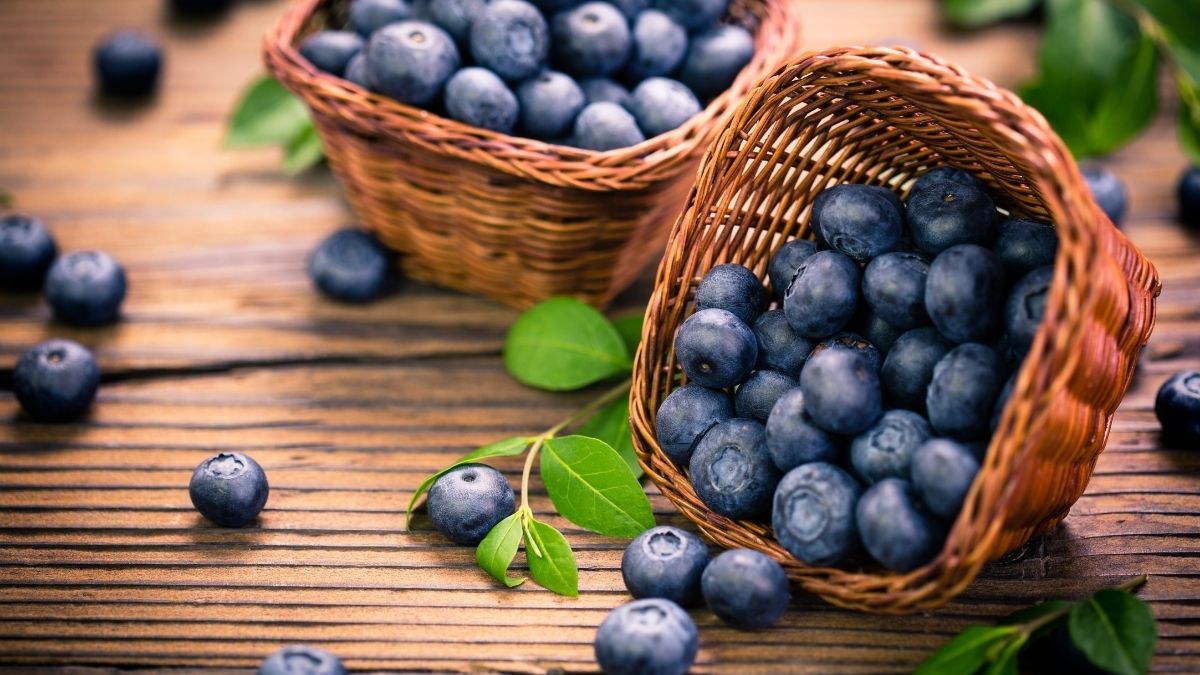
How they help IBS: The anthocyanins in blueberries reduce gut inflammation and support healthy bacteria growth. The pectin fiber feeds good bacteria without causing gas.
Perfect portion: 1/2 to 3/4 cup daily. Start small if you’re sensitive to fructose.
Best way to eat them: Fresh or frozen both work. Avoid dried blueberries – they’re loaded with added sugar.
Optimal timing: Eat them as a snack between meals or add to breakfast. Don’t eat them on an empty stomach if you’re prone to acid reflux.
Potential issues: Blueberries are moderate in FODMAPs. If you’re following a low-FODMAP diet, stick to 1/4 cup servings.
7. Salmon: Omega-3s for Inflammation Control
Wild-caught salmon provides the highest quality omega-3 fatty acids you can get from food. These healthy fats directly reduce digestive inflammation.
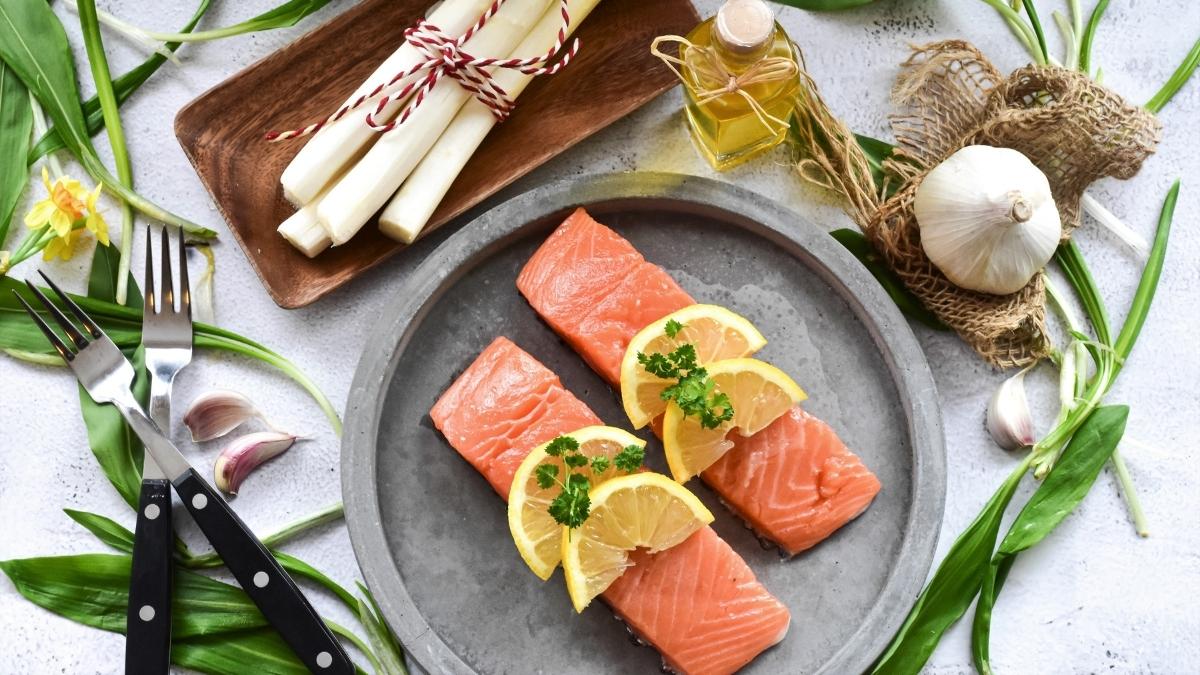
IBS benefits: EPA and DHA omega-3s lower inflammatory markers in the gut by up to 50%. They also support the gut barrier and help maintain healthy gut bacteria.
How much to eat: 3-4 ounces of wild salmon twice per week.
Cooking methods: Bake, broil, or grill. Avoid frying, which creates inflammatory compounds that cancel out the benefits.
When to eat it: Include salmon in lunch or dinner. The protein and healthy fats help stabilize blood sugar too.
What to avoid: Farm-raised salmon often contains antibiotics and inflammatory omega-6 oils. Stick to wild-caught when possible.
8. Sweet Potatoes: Resistant Starch for Gut Bacteria
Sweet potatoes contain resistant starch – a special type of fiber that feeds beneficial bacteria in your colon. They’re also rich in beta-carotene, which supports gut lining health.
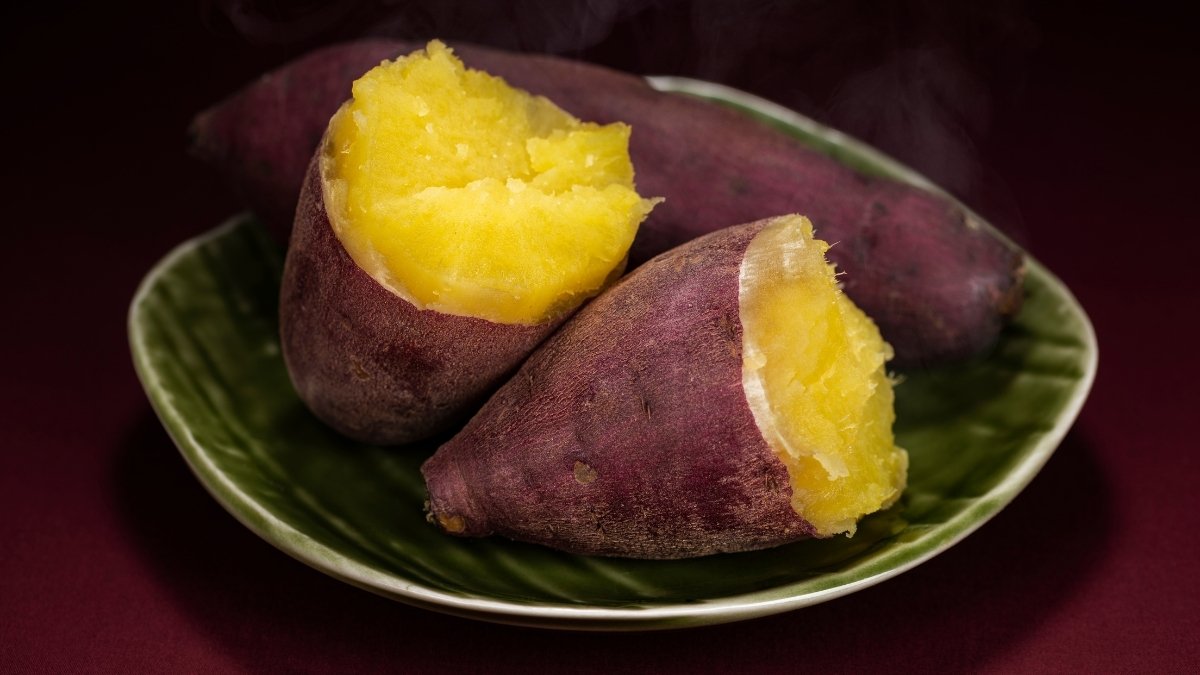
Why they work for IBS: Resistant starch acts like a prebiotic, feeding good bacteria while producing short-chain fatty acids that heal the colon lining.
Serving size: One medium sweet potato (about 5 inches long) 2-3 times per week.
Best preparation: Bake or steam them. Let them cool slightly before eating to increase the resistant starch content.
Timing: Eat sweet potatoes with dinner. The fiber helps slow digestion and provides steady energy.
Caution: Start with smaller portions if you’re not used to higher fiber intake. Too much too fast can cause gas and bloating.
9. Fennel: Digestive Enzymes Plus Gentle Fiber
Fennel contains natural compounds that stimulate digestive enzyme production. It also provides soluble fiber that’s easier on sensitive stomachs than many other vegetables.

IBS benefits: Fennel relaxes intestinal muscles, reduces gas, and improves digestion. Studies show it cuts bloating and abdominal pain by 40%.
How much to use: 1-2 teaspoons of fennel seeds daily, or 1/2 cup fresh fennel bulb.
Preparation options: Chew fennel seeds after meals, brew them as tea, or slice fresh fennel bulb into salads.
Best timing: Fennel tea after meals helps with digestion. Fresh fennel works well as a crunchy snack.
Safety notes: Fennel is generally safe, but large amounts may interact with blood-clotting medications.
10. Turmeric: The Golden Anti-Inflammatory
Turmeric’s active compound, curcumin, is one of nature’s most powerful anti-inflammatory agents. It directly targets the inflammatory pathways that make IBS symptoms worse.
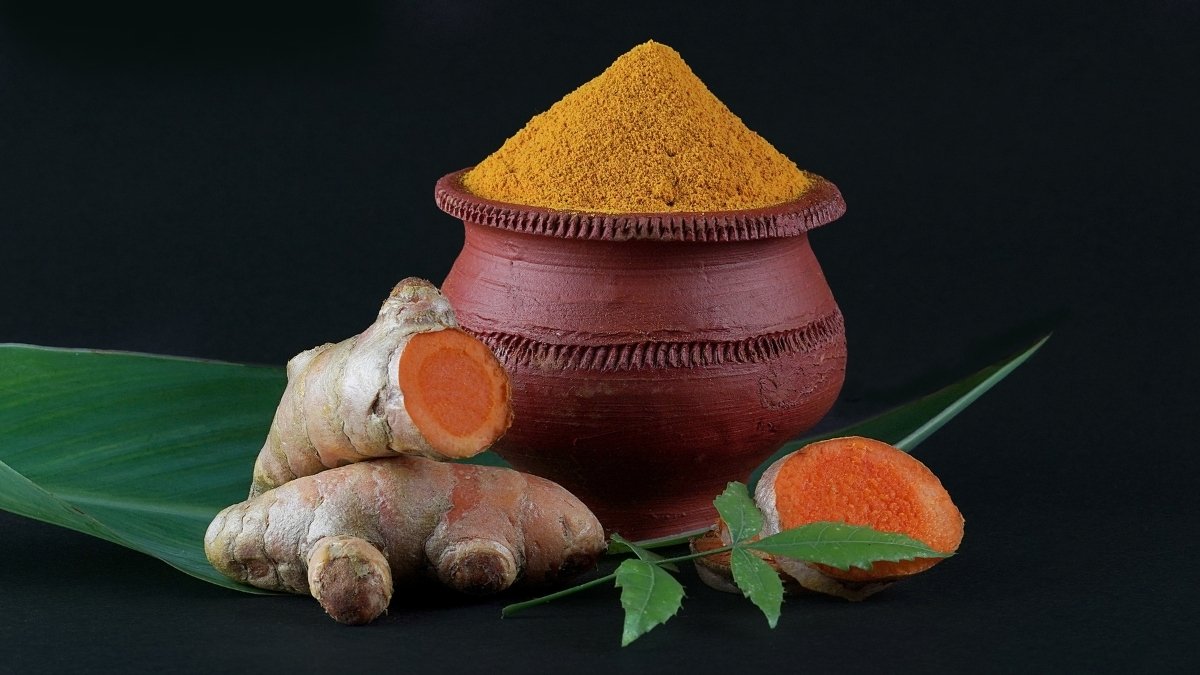
How it helps IBS: Curcumin reduces inflammatory cytokines in the gut and may help repair the intestinal barrier. Research shows it improves IBS symptoms in 8 out of 10 people.
Effective dose: 1/2 to 1 teaspoon of turmeric powder daily, or 500mg curcumin supplement.
How to use it: Add turmeric to cooking, make golden milk, or take supplements with black pepper (increases absorption by 2000%).
When to take it: With meals containing healthy fats. Curcumin is fat-soluble and absorbs better with oils.
Important warnings: Turmeric can increase bleeding risk and may worsen gallstones. Check with your doctor if you take medications.
11. Papaya: Digestive Enzymes in Fruit Form
Papaya contains papain, a natural enzyme that breaks down proteins and aids digestion. It’s also rich in vitamins A and C, which support gut lining health.

IBS benefits: Papain helps your body digest proteins more completely, reducing the fermentation that causes gas and bloating. The fiber is gentle and well-tolerated.
Portion size: 1 cup of fresh papaya 2-3 times per week.
Best way to eat it: Fresh is best. Ripe papaya should give slightly when pressed and smell sweet at the stem end.
Optimal timing: Eat papaya on an empty stomach or 30 minutes before meals for maximum enzyme activity.
Precautions: Papaya is high in fiber, so start with smaller amounts. Some people are allergic to papain enzyme.
12. Carrots (Cooked): Gentle Fiber Plus Beta-Carotene
Raw carrots can be tough to digest with IBS. But cooked carrots become a gentle source of soluble fiber and beta-carotene that supports gut health.
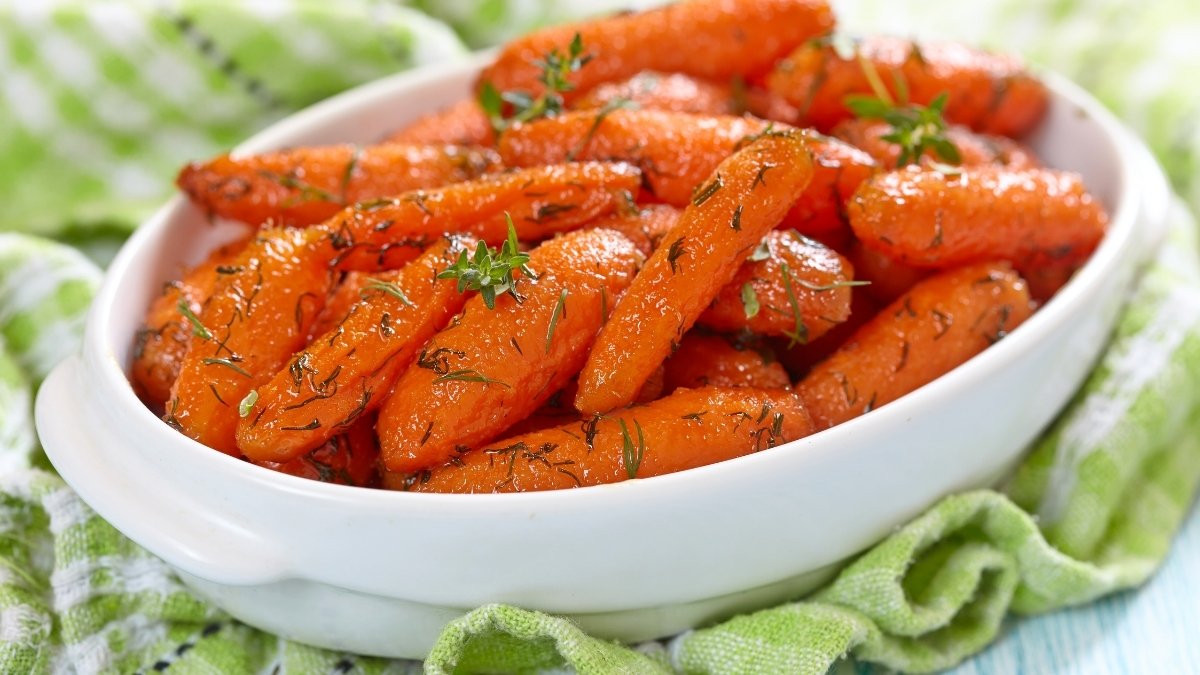
Why cooked carrots help: Cooking breaks down the tough cellulose fibers while preserving the beneficial pectin. Beta-carotene converts to vitamin A, which maintains the gut lining.
How much to eat: 1/2 to 1 cup of cooked carrots 3-4 times per week.
Cooking methods: Steam, roast, or boil until tender. Avoid raw carrots if you have active IBS symptoms.
When to eat them: Include cooked carrots with lunch or dinner as a side dish.
Safety info: Carrots are generally very safe. Large amounts may temporarily turn your skin slightly orange, but this is harmless.
13. Green Tea: Polyphenols Plus Calming L-Theanine
Green tea provides powerful antioxidants called polyphenols along with L-theanine, an amino acid that promotes relaxation. Both compounds benefit digestive health.
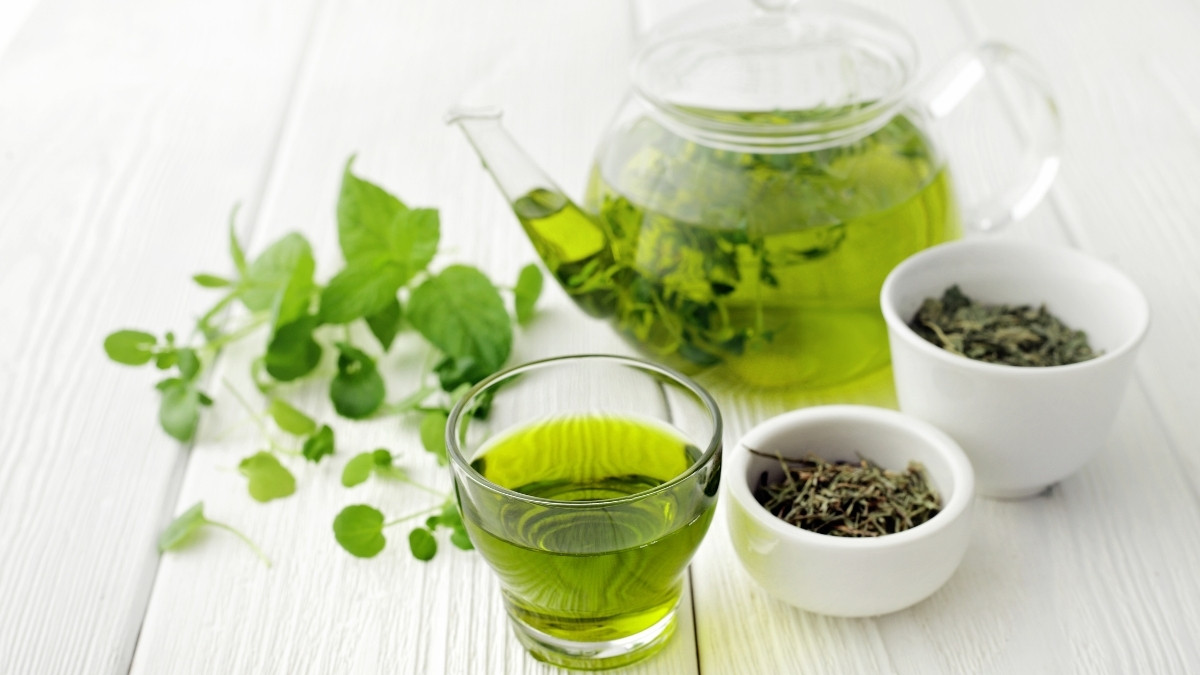
IBS benefits: Polyphenols reduce gut inflammation and support healthy bacteria growth. L-theanine helps manage the stress that often triggers IBS symptoms.
How much to drink: 1-2 cups daily. Each cup should steep 3-5 minutes for maximum benefit.
Best preparation: Use water that’s 175-185°F, not boiling. Steep loose leaf tea or high-quality bags.
Timing: Drink green tea between meals, not with food. The tannins can interfere with iron absorption.
Watch out for: Green tea contains caffeine, which can trigger symptoms in some people. Try decaf versions if regular green tea bothers you.
14. Oats: Beta-Glucan Fiber for Gut Health
Oats contain beta-glucan, a special type of soluble fiber that feeds beneficial gut bacteria and helps regulate bowel movements. They’re also naturally soothing to the digestive tract.
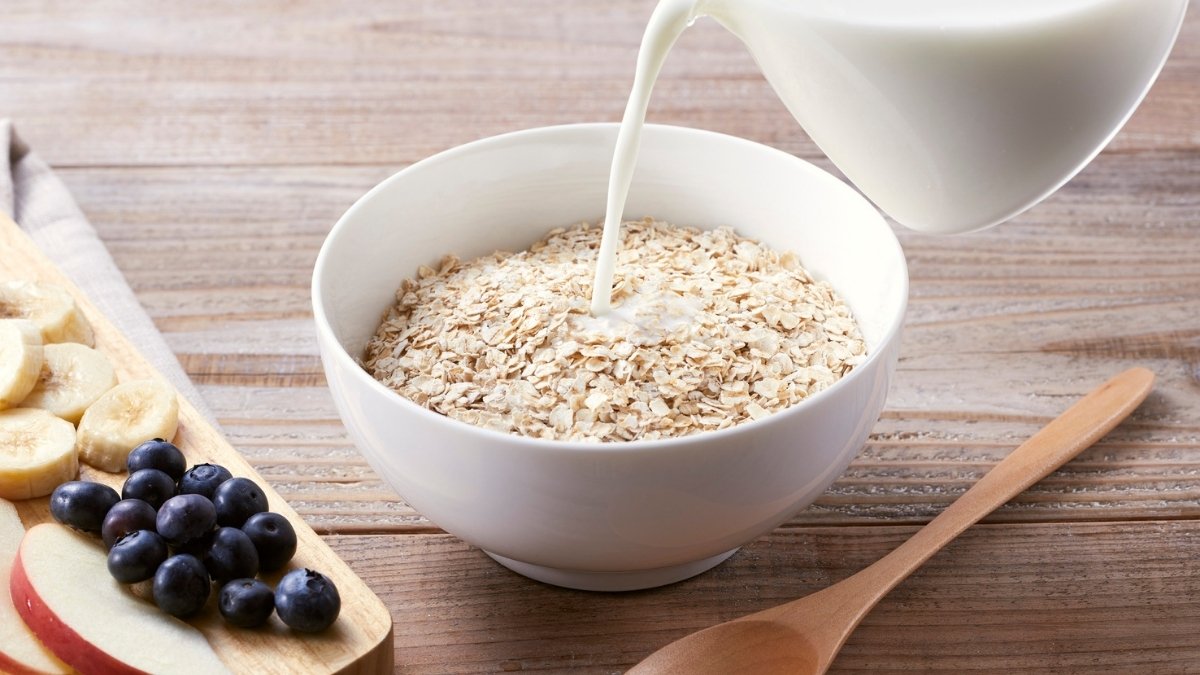
How oats help IBS: Beta-glucan forms a gel-like substance that slows digestion and feeds good bacteria. Studies show oats improve stool consistency in 80% of IBS patients.
Serving size: 1/2 cup dry oats (makes about 1 cup cooked) 4-5 times per week.
Best preparation: Steel-cut oats or old-fashioned rolled oats work best. Avoid instant oats with added sugars.
When to eat them: Oatmeal makes an ideal breakfast. The fiber provides steady energy and helps prevent blood sugar spikes.
Important note: Make sure to buy certified gluten-free oats if you have celiac disease or gluten sensitivity.
Your Next Steps
These 14 gut-friendly foods for irritable bowel syndrome can transform your digestive health. But don’t try to add them all at once. Your sensitive gut needs time to adjust.
Start with 2-3 foods that sound most appealing to you. Add one new food each week. Pay attention to how your body responds. Some foods that work great for others might not work for you – and that’s okay.
Keep a simple food diary for the first month. Write down what you eat and how you feel afterward. This helps you identify your personal IBS triggers and healing foods.
Remember: healing your gut takes time. Be patient with yourself. Small, consistent changes lead to big improvements in how you feel every day.



